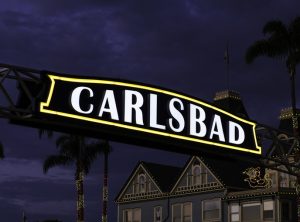Thermo Fisher Scientific has set out to capture a larger share of the growing DNA therapy and RNA vaccine market with a new facility in California.
The facility – a 67,000-square-foot facility located at Thermo’s Carlsbad campus – will supply plasmid DNA for drug candidates in clinical trials as well as commercial supply.
The firm cited growing global demand for plasmid DNA-based therapies and vital mRNA-based vaccines as the driver for the investment.

Image: iStock/HiddenHillsArtsPhotography
CEO Marc Casper said, “Demand for commercial plasmid DNA is outpacing supply as the development of transformative gene therapies and vaccines accelerates globally.”
Plasmid DNA is increasingly used as a therapeutic agent in gene therapies and vaccines. Its advantages, including weak immunogenicity, increased safety and ease of manufacture, have dramatically increased demand for materials and manufacturing capacity globally.
Thermo’s comments are in keeping with research published last year, which suggested growth of the cell and gene therapy sector – combined with companies developing COVID-19 vaccines – had created a bottleneck.
According to the authors, “The global demand for DNA, primarily in the form of plasmid DNA, has risen dramatically in recent years. An upward trend driven largely by the advent of cell and gene therapies, at least until the outbreak of the Covid-19 pandemic.”
In addition, recent analysis suggested that the market for plasmid DNA manufacturing services will be worth $635.1 million in 2021. The same survey predicted the market will grow at a CAGR of 23.2% over the forecast period through to 2028.
Investment
News of the facility comes a few months after Thermo announced a partnership with the University of California, San Francisco (UCSF) to set up a cell therapy manufacturing center as the latter’s Mission Bay campus in San Francisco.
The firm said both the plasmid and cell therapy facilities are part of “an investment strategy to ensure customers can reliably meet growing global demand for cell and gene therapies and vaccines.
Thermo predicted the plants – alongside its vector production services in Cambridge, Lexington and Plainville, Massachusetts, Alachua, Florida and Gosselies and Seneffe in Belgium and a cryocenter in Weil am Rhein, Germany – would accelerate customer projects.
